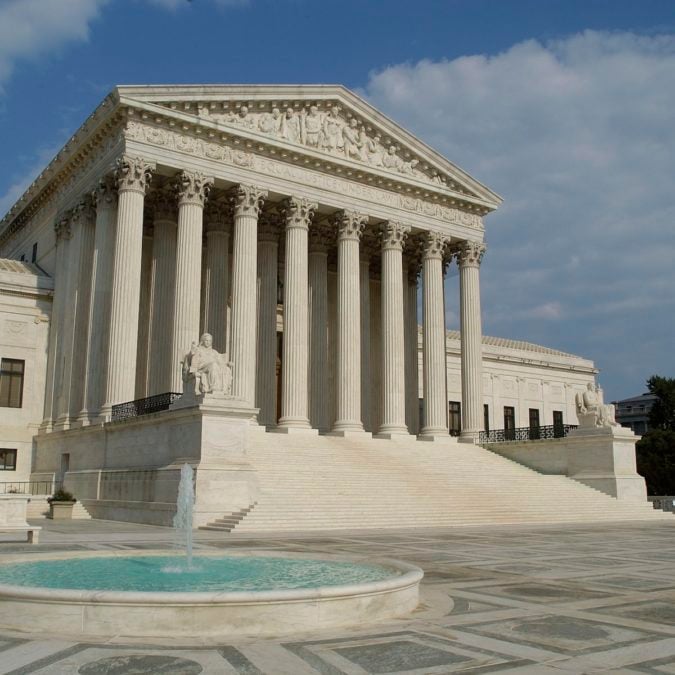
A closely watched case that could have a huge impact on the LGBTQ community and implications for nondiscrimination policies related to religious institutions will be heard in the U.S. Supreme Court Wednesday. Photo: US Supreme Court.
UPDATE: Here is CNBC’s coverage of the Fulton v. City of Philadelphia case that the U.S. Supreme Court heard Wednesday.
A closely watched case that could have a huge impact on the LGBTQ community and implications for nondiscrimination policies related to religious institutions will be heard in the U.S. Supreme Court Wednesday.
Fulton v. City of Philadelphia
In Fulton v. City of Philadelphia, here’s the question before the court — Did Philadelphia violate Catholic Social Services’ religious-freedom rights when it canceled a taxpayer funded contract with the agency because it refused to place foster children with same-sex couples. Philadelphia has a nondiscrimination ordinance that covers city contracts.
The case is named after Sharonell Fulton, a longtime foster parent with Catholic Social Services, who sued the city over the cancellation of the agency’s contract.
Marriage equality under threat from Clarence Thomas, Samuel Alito
Previous court wins
Philadelphia already has won twice. Two lower courts said the city did not violate Catholic Social Services’ religious liberties when it terminated its contracts with the agency.
“The City of Philadelphia is proud of our longstanding commitment to supporting freedom of religion and preserving equal access to services for all people,” City Solicitor Marcel S. Pratt has said in a statement. “Unfortunately, CSS refused to consider qualified same-sex couples to become foster parents — even when these couples would be a safe, loving family for the child — and in doing so, CSS defied the city’s nondiscrimination policy.”
In an interview with the Philadelphia Inquirer, Lori Windham, senior counsel at the Becket law firm representing Catholic Social Services, said that same-sex couples are able to adopt and foster children in Philadelphia, just not through the archdiocese’s agency.
The agency should be able to continue it’s practice of using taxpayer money to deny foster children to same-sex couples, she said.
Road to the Supreme Court
The road to the Supreme Court started in March 2018. Catholic Social Services refused to change its policy to align with the city’s anti-discrimination ordinance, and the city ended its foster-care contract with the agency.
Catholic Social Services sued, claiming that the city had violated its religious freedom.
Later that year, U.S. District Judge Petrese B. Tucker upheld the city’s decision, ruling the city’s Department of Human Services had a legitimate interest in ensuring “that the pool of foster parents and resource caregivers is as diverse and broad as the children in need of foster parents,” according to the Inquirer.
In April 2019, the U.S. Court of Appeals for the Third Circuit affirmed that decision, ruling that the city did not target the agency because of its religious beliefs, but acted only to enforce its own nondiscrimination policy in the face of what seemed to be a clear violation, according to the Inquirer.
